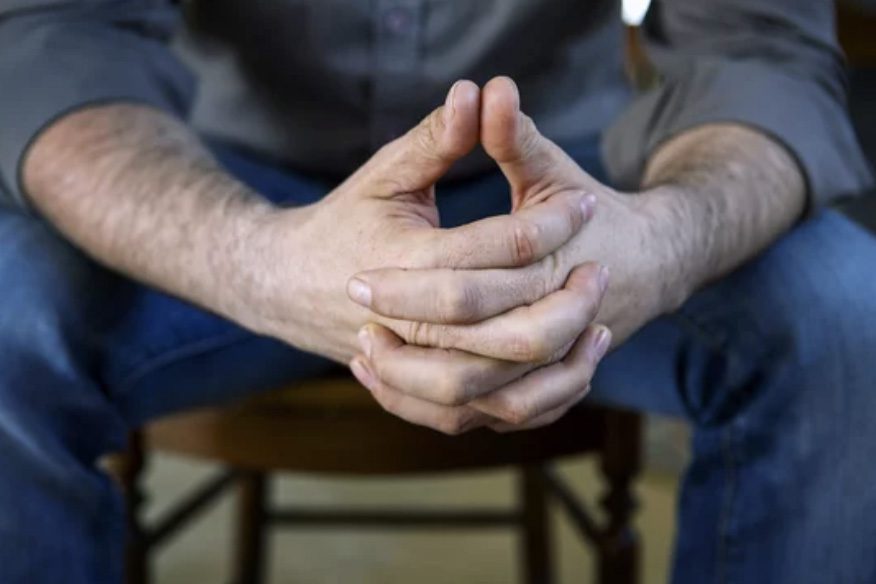

[vc_row unlock_row=”” row_height_percent=”0″ overlay_alpha=”50″ gutter_size=”3″ column_width_percent=”100″ shift_y=”0″ z_index=”0″][vc_column][vc_column_text]
Do members of your family, friends or colleagues make remarks about how often you gamble? Do you ever sense a look of anguish and worry when your partner sees you on your laptop or looking at your mobile phone? I remember these looks. Funnily enough these looks came well before my gambling entered the realms of disordered gambling because by then I was far too good at hiding it.
My wife thought I had stopped gambling. My parents and brothers thought the same and this was because I stopped talking about gambling altogether.
When I started gambling, I never envisaged it becoming a problem. After all it is a normalised activity and widely accepted in much of society. It is marketed, wrongly in my opinion, as a leisure activity that should be fun and does not cause harm.
When I started gambling this is how I viewed it and as such I was happy to tell people that I was putting some money on a horse race, or on the outcome of a football game. However, as time passed, I would be putting in play bets on throughout the duration of a football match and possibly spinning a roulette wheel at the same time.
It was at this point that my wife started to question what was happening. I felt uneasy and would lie saying that I was doing something else on my phone or laptop. I would no longer say I was gambling. It was my secret. I did not want to lie but I could not stop myself.
Interestingly at this point I did not question whether my gambling was becoming harmful. Instead, I kept pretending that I could stop on my own whenever I wanted to. I believed that gambling helped me deal with my emotional problems and as such if I needed to do it in secret then that is what I would have to do.
In hindsight I know this did not help me deal with my problems. Instead, they got far worse. I became isolated and lied to gamble, damaging relationships in the process.
I remember telling my Dad once that I put £20 on a dog race. He told me it was too much, and I needed to be careful. I brushed this off and said, “I do not often gamble on dogs but if I do it is normally only a small bet”. This was a lie.
After years of lying and suffering evermore harm I realised that I needed to ask some questions of myself. After all others had been questioning me years before when the harm was far less of a concern to me.
I asked myself the following:
Problem Gambling Severity Index
Q1 – Have you bet more than you could really afford to lose?
Q2 – Have you needed to gamble with larger amounts of money to get the same feeling of excitement?
Q3 – When you gambled, did you go back another day to try to win back the money you lost?
Q4 – Have you borrowed money or sold anything to get money to gamble?
Q5 – Have you felt that you might have a problem with gambling?
Q6 – Has gambling caused you any health problems, including stress or anxiety?
Q7 – Have people criticized your betting or told you that you had a gambling problem, regardless of whether or not you thought it was true?
Q8 – Has your gambling caused any financial problems for you or your household?
Q9 – Have you felt guilty about the way you gamble or what happens when you gamble?
I answered these questions based on the 4-point scoring scale below.
Based on my score I could no longer pretend to myself that I did not have a problem and I reached out for help.
Have a go:
Maybe you could have a go at answering the questions now?
When answering think back over the last 12 months. Remember to be honest with yourself and answer each question using the 4-point scale:
If you scored 0 then you are a gambler who gambles with no negative consequences.
Any score above 0 means you are experiencing some harm.
If you scored a 1 or 2, this indicates a low level of problems with no identified negative consequences. Between 3 and 7 indicates a moderate level of problems with some negative consequences and if you scored 8 or more, this indicates gambling with negative consequences and with a possible loss of control.
How do you feel about your score? Has gambling become a problem? Is it becoming a problem? If you continue to gamble can you imagine your PGSI score going up?
Personally, I wonder how much pain I could have saved myself had I asked myself these questions sooner and sought the right support.
Gamblers Anonymous:
After asking myself these questions and accepting that I needed help I attended Gamblers Anonymous (GA)
GA also have a set of questions to ask yourself. If you answer yes to at least 7 of their 20 questions, then you are likely to be a compulsive gambler. Compulsive gambler is the term adopted by GA for someone who suffers gambling harm.
GamCare
Another option is to use GamCare’s online self-assessment tool called GamTest. The test is designed to identify risky gambling behaviour and provides feedback based upon your answers. The feedback is given under 5 different sections:
Links to useful resources are provided off the back of the answers given.
It is worth noting that GamCare also run the National Gambling Helpline (0808 802 0133) which is available 24 hours per day every day of the year and are also part of a campaign called TalkBanStop along with GAMSTOP and Gamban.
If you are worried, reach out for help, there is lots available. Call the National Gambling Helpline on 0808 802 0133, visit the GA and GamCare websites, check out their chat rooms. Attend a GA meeting or why not listen to a gambling recovery podcast? I will write a blog on podcasts in the future because there are some great ones out there, they are available 24 hours a day, and they continue to help a lot of people. For now, I will just mention my podcast which is All Bets Are Off. Please have a listen, you will hear from inspiring people who have tackled their relationship with gambling. If you need to change your relationship with gambling, you can too.
Chris Gilham
Twitter – gillsy1002_
Co-host – All Bets Are Off[/vc_column_text][/vc_column][/vc_row]
#AD Bonus Referrer Code is an affiliate of the brands we promote throughout this site. While we strive to maintain accuracy throughout our content, we do receive compensation for this promotion.
© 2025 BonusReferrerCode.com – All Rights Reserved
Worried about your gambling? When the fun stops – STOP!